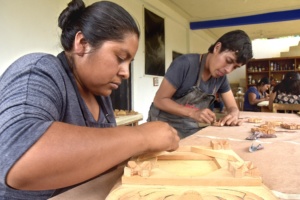Nigeria. On June 12th, Goteh Keenam and Dambani Kuenu, two young Ogoni men from Zor-Sogho community in Rivers state, Nigeria were shot dead by policemen. The two were protesting ongoing attempts by the State government to smuggle the Bori Camp Military Barracks, which houses the Second Amphibious Brigade in Port Harcourt into Ogoni territory.
Although these types of extra-judicial killings are all too common in Ogoni and throughout Nigeria, the murders and the growing resistance to the relocation of Bori camp seem to signal a coming confrontation in Ogoni*, the likes of which hasn’t been seen for some years.
During the 1990’s the Ogoni people led a largely non-violent mass movement to eject Royal Dutch Shell, responsible for 40 years of environmental destruction, from their oil-rich lands. The response from Nigeria’s military dictatorship at the time was one of complete cooperation with Shell and of complete contempt for the Ogoni people and their land. The leadership of the Movement for the Survival of the Ogoni People (MOSOP), the apex organization that led the anti-Shell movement, were liquidated along with thousands of Ogoni’s who were killed, raped, or displaced as a result of «wasting operations» meant to shore up Shell’s continued presence in the area.
Despite the death and destruction, the Ogoni did successfully oust Shell from their land, where they continue to be persona non grata 15 years later. Nevertheless, the devastation wrought during the conflict is still felt today. MOSOP, which once provided leadership and a banner under which the Ogoni could struggle never fully recovered, splintering into factions and losing most of its vision and militancy in favor of an NGO approach.
But the shootings in Sogho and the continued obstinancy of the Rivers State government to relocate military barracks to Ogoni against the will of the people have had a unifying effect. Factions of MOSOP who refused to work with one another have come together. There are mobilizations at the village level unseen in years. And both Ogoni’s and supporters around the world are joining forces and using all avenues at their disposal to voice a collective «No!» to the unwanted cantonment.
Beyond the bitter taste the conflict of the 1990’s left in the mouths of Ogoni’s with regards to the military, there are underlying geographic, demographic and political issues that make the relocation of Bori Camp even more contentious. More than 500,000 Ogoni live in a 1050 square-kilometer area, making their territory one of the most densely populated regions on the African continent. And massive tracts in Ogoni have been expropriated over the years by multinational oil companies and the Nigerian Federal Government, hampering access to necessary fishing and farming land which provide the backbone to the traditional economy and livelihoods of the people.
So why does the Rivers State government want to move Bori Camp to Ogoni? Actually, no official reason has been given, as the government refuses to acknowledge that the plan has been put in motion. They are claiming that they want to site a mechanized banana farming project on the land but have curiously sent military surveyors to begin the expropriation process. And it is a known fact, although not official information, that the land on which Bori Camp now sits in the heart of Port Harcourt has been sold and the proceeds shared amongst local politicians, including the state governer who is one of the main proponents of the relocation of the barracks to Ogoni.
But the real reason for the proposed move is simple: oil. The Nigerian government wants to re-establish an army presence in Ogoni as a precursor to getting the oil flowing freely again after 15 years. Shell knows it can never go back into Ogoni and has been trying to sell off its concessions in the territory for the past couple of years. And the Nigerian government, always the loyal lap-dog of the Anglo-Dutch consortium, for its part, is trying to help pave the way for the sale by creating the necessary business-friendly conditions.
For all this skullduggery, no one in Ogoni, from the most seasoned MOSOP activist to the illiterate market women, has been fooled. Everyone knows Bori Camp is coming. And they know why. On June 19th, MOSOP and other Ogoni activists came together at the Ogoni Peace and Freedom Centre in Bori to vehemently condemn the unabated violation of the human rights of the Ogoni people by armed soldiers while forcefully surveying the controversial farmlands, and demanding the immediate withdrawal of troops from Ogoni. Similarly, those present rejected any acquisition of land in Ogoni whether for the proposed relocation of a military facility or for agricultural purposes and called on the government to stop all surveying activities.
Now it’s a question of the Ogoni staying organized and on the offensive in order to abate the military encroachment on their land and the subsequent return of oil companies and the environmental devastation they cause.
NOTE: * Ogoni refers to both the people and their territory and is used interchangeably



